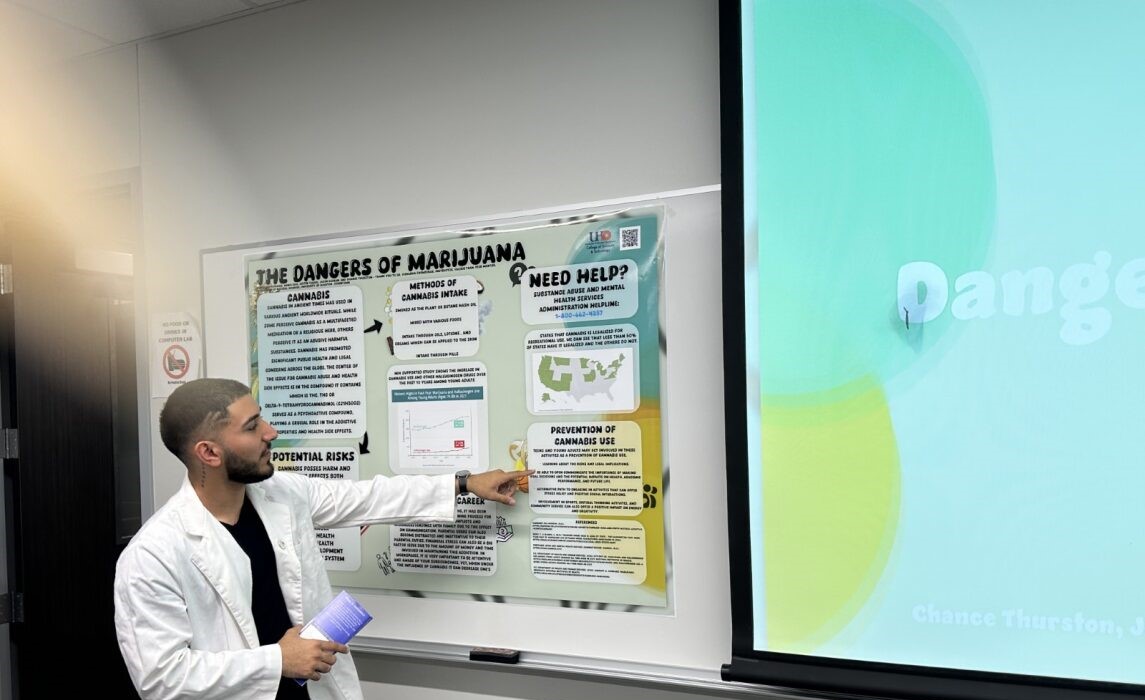Gators Teach High Schoolers High Costs of Hard Drugs
Heart attacks, bronchitis, impaired memory, constipation, liver disease, tooth decay,
kidney failure, pancreatitis, brain damage, incontinence, and seizures. These are
the consequences. 
The preceding action? Abusing street drugs.
Recently, a group of Gators presented their findings on just that subject to a group of local high school students, all of whom were shocked by the effects, yes, but also excited about the underlying chemistry the UHD students had employed to research them. The presenters were all taking part in a Service-Learning project as part of an Organic Chemistry course taught by Dr. Vishakha Shembekar, a Lecturer in the Natural Sciences Department in the College of Sciences & Technology.
More than 100 high school students participated in the event, and they had the chance to learn and digest the data and conclusions in a variety of ways—PowerPoint, oral presentation, poster, and brochure—this way, all types of learners were accommodated.
Dr. Shembekar noted the importance of incorporating impactful Service-Learning experiences such as this into coursework, as it not only helps students but the surrounding community. She made a special mention of Dr. Poonam Gulati, Executive Director, Impact Learning Office, as the student presentations and the event would not have been possible without that office's support.
 Also of note is the social context in which this Service-Learning project took place.
According to an analysis conducted by Chron.com in 2017 and data obtained from the Texas Education Agency, nearly 50% of the top 30 high
schools with the highest percentage of drug-related incidents belong to the Fort Bend
Independent School District and Houston Independent School District, and the numbers
have surely grown since that time.
Also of note is the social context in which this Service-Learning project took place.
According to an analysis conducted by Chron.com in 2017 and data obtained from the Texas Education Agency, nearly 50% of the top 30 high
schools with the highest percentage of drug-related incidents belong to the Fort Bend
Independent School District and Houston Independent School District, and the numbers
have surely grown since that time.
We can hope, then, that the research presented by these Gator students has consequences as well. Positive ones that warn, entertain, and educate local high school students to not abuse drugs, of course, but to also find a field they enjoy and pursue it with scholarly vigor.
